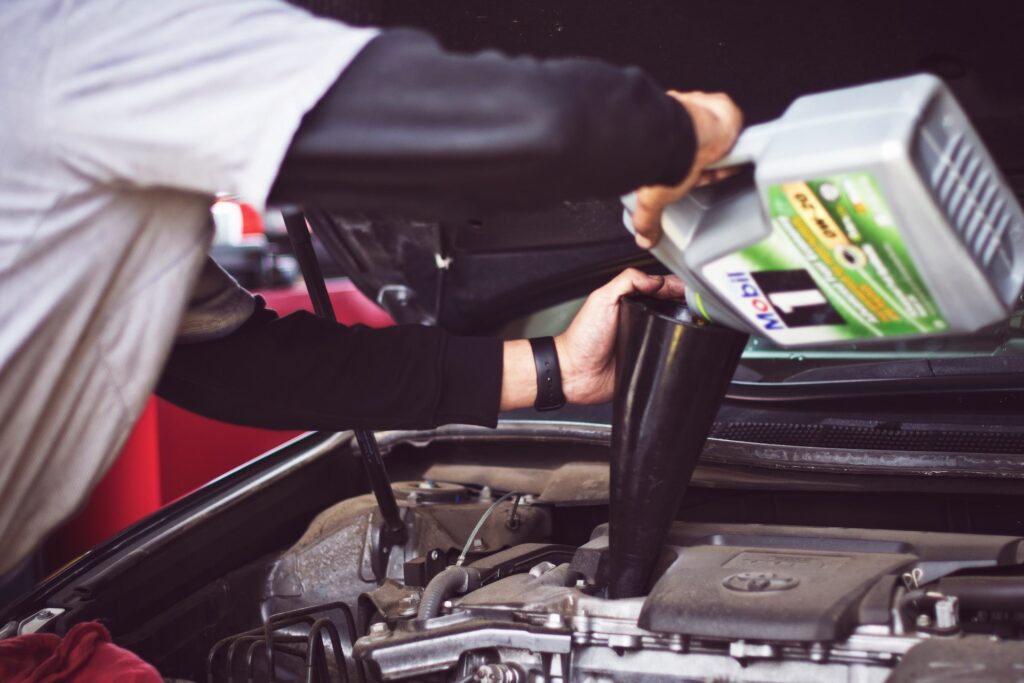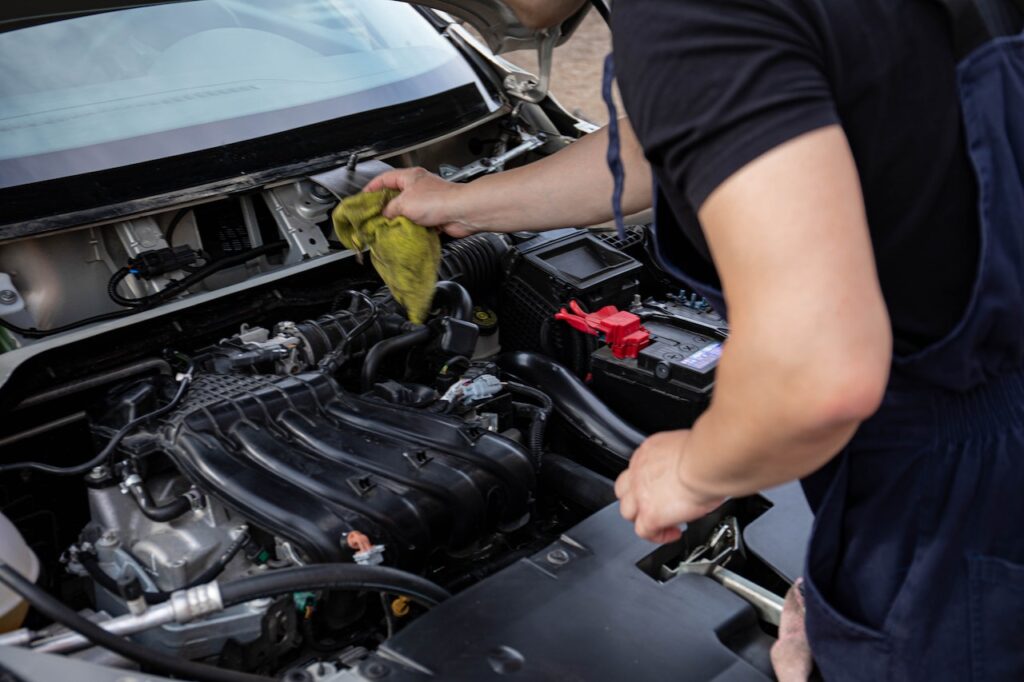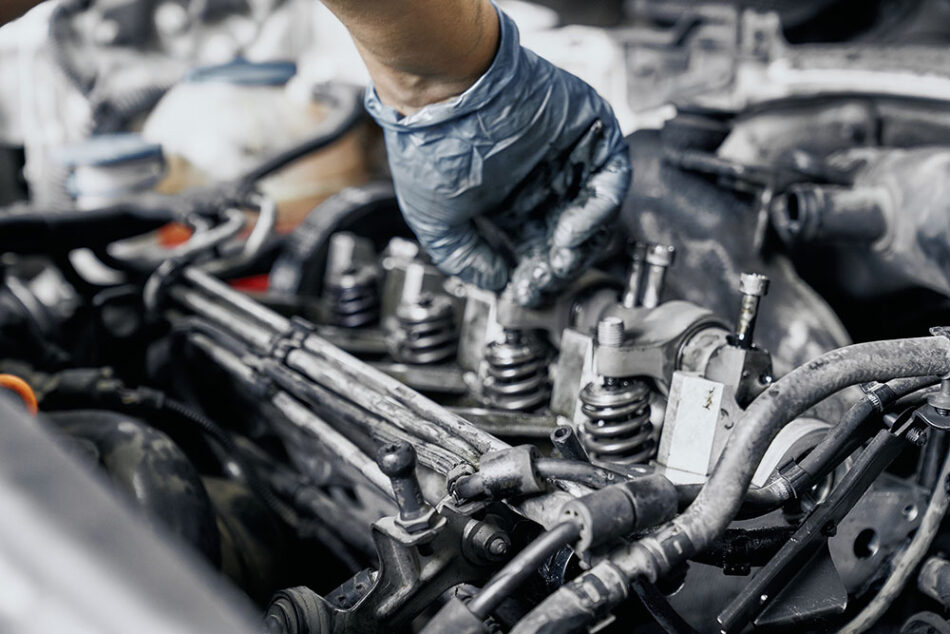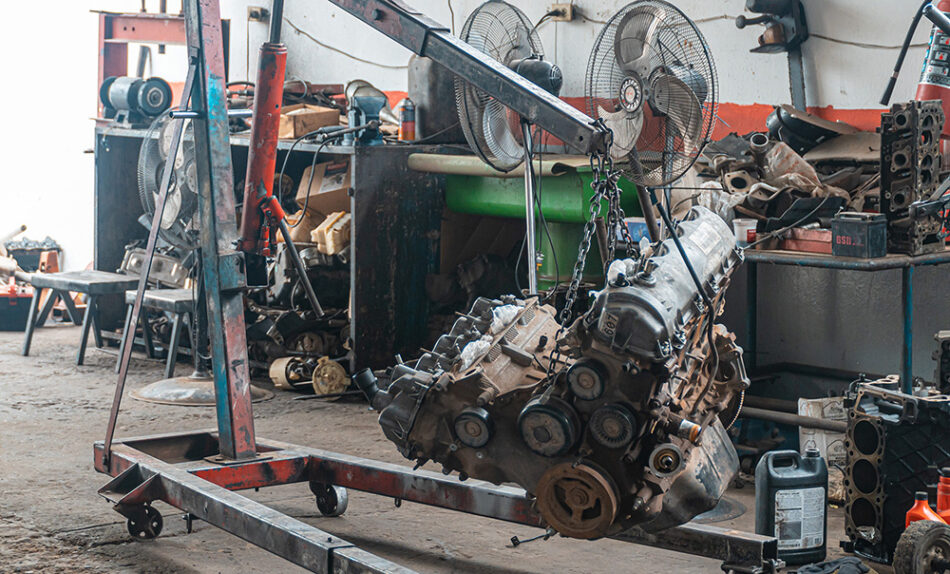Extend engine life: How to keep your engine running forever!

Regular engine maintenance is essential for keeping your car running smoothly and efficiently, as well as avoiding costly breakdowns and repairs.
In this article we discuss how to extend engine life, we’ll explore the necessity of engine maintenance, typical engine problems, and how to maintain your engine running at top performance.
Why Engine Maintenance is Important
Engine maintenance is good practice as part of your car ownership journey. A neglected engine can result in among others poor performance, lower fuel efficiency, and expensive repairs.
Engine maintenance is important for several reasons, one of which – it enables the early detection and correction of minor difficulties.
Regular maintenance helps avoid expensive maintenance or in extreme cases – engine overhaul.
Routine oil changes keep your engine lubricated and operating efficiently and thus help extend engine life. Old or dirty oil often leads to engine sludge which is closely followed by engine knock if not fixed.
Simple air filter change ensures improved airflow to the engine which helps burn fuel more efficiently.
Your car’s lifespan can be increased with routine engine maintenance. You could potentially stop early wear and tear on engine parts like the pistons, bearings, and camshaft by keeping your engine well-maintained.
There is no better way to extend your engine life and by default reduce the need for pricey maintenance or replacement.
Regular engine maintenance is essential for safety reasons in addition to increasing the performance and longevity of your car. Unmaintained engine parts may malfunction while you are driving, which may result in accidents or breakdowns.
Faulty water pumps or radiators might lead to your engine overheating and breaking down on the side of the road.
Common Engine Problems
Engine problems are mostly caused by negligence which results in a multitude of engine issues. We are talking about:-
Overheating: The engine block, cylinder heads, and gaskets may suffer catastrophic harm if your engine overheats. This can be caused by low coolant, a broken thermostat, or a bad water pump, which might contribute to overheating.
Oil Leaks: Gaskets, seals, and other parts that are worn out can contribute to leaks. Oil leaks can seriously harm engines if they are ignored.
Poor Fuel Efficiency: When an engine is not properly maintained, its fuel efficiency might deteriorate, raising long-term fuel costs.
Engine Misfires: Misfires in engines can be caused by damaged spark plugs, malfunctioning ignition coils, or clogged fuel injectors. Misfires can reduce engine performance and cause engine damage if left ignored.
Check Engine Light: If your vehicle’s check engine light turns on, it could mean some parts or part needs urgent attention. A competent mechanic should diagnose your car to find the cause of the problem.
How to extend engine life

Engine maintenance is critical to keeping your engine running properly. Here is some maintenance advice to keep your engine performing optimally:
Observe the maintenance schedule in the manufacturer manual: This covers routine maintenance activities like changing the air filter and changing the oil. If you don’t have access to the manual, replace the oil at least every 5,000 miles, the transmission fluid every 40,000 miles, the air filter every 10,000 miles, and the brake and radiator coolant every five years.
Oil service
If you own a BMW or any luxury German vehicle, you must have experienced issues that may have been prevented with regular oil changes.
BMW’s prolonged oil service was a nightmare and it was a hard truth for the company to face. Still beats logic that BMW recommended over-10,000-mile oil changes which led to multiple engine issues. As a matter of fact, the VANOS, which depends on clean oil was a common failure in BMWs made before 2015. The result was usually catastrophic and the prolonged oil service was to blame.
Simple tip: Use the correct oil and viscosity. Check the engine oil regularly. Smell the dipstick if you have one for any fuel odors, which indicate that fuel is entering the cylinders.
We can’t stress this enough: as a general rule of thumb, oil changes every 5 to 6k miles or every 12 months, whichever comes first, will help keep engines in great shape.
Change the oil at least every six months or 4,000 miles while driving in harsh conditions like cold weather and short distances. That is not a typo, short distances are stressful to the engine ladies and gentlemen.
Transmission fluid
Transmission fluid is similarly important, and timely servicing will preserve the transmission from sloppy or slippery shifting and wear. However, repairing and replacing transmission fluid in an automatic transmission is a tricky business. Ensure that it is performed by mechanics who specialize in that particular vehicle. A slipping and broken transmission is not a pleasant outcome as a result of a shoddy transmission fluid replacement.
Transmission changes are suggested every 50 to 60k miles for automatic transmissions. With a simple drain and fill, changing the transmission fluid for a manual transmission is straightforward. replace every 30,000 miles
Brake fluid
On the driver’s side, next to the firewall, is where you’ll find the brake fluid reservoir. Always make sure the fluid is at its ideal level (the reservoir’s side wall shows the maximum and minimum levels).
At least every two years, when the fluid’s color should have changed to black, change the fluid.
Coolant
Overheating is an engine’s worst nightmare; in most circumstances, the cooling system, which includes the radiator and water pump, will be malfunctioning. The substance that circulates between the two to maintain optimal temperatures is known as a coolant.
Use the appropriate coolant at the appropriate level. Failure to maintain coolant levels may result in a damaged water pump, with a replacement costing at least $400. Furthermore, the radiator is prone to failure, and replacing it is an expensive undertaking. A coolant flush is advised every four years in both the radiator and the engine block to minimize corrosion and improve engine life.
EGR valve
Clean the EGR valve so that exhaust gases can move freely. Modern engines are finicky, and EGR valves complicate matters even more since they are highly sensitive. EGR failures can cause a variety of issues, including:-
- Reduced performance
- Blown head gaskets
- Reduced performance
- Increased fuel consumption
- Poor acceleration
- Engine knock
- Check engine light
Simply use a carbon cleaner to remove deposits from the EGR. You can do it yourself or hire a mechanic.
Use premium fuel
Use premium quality fuel. However, save money by just using the fuel grade specified in your owner’s manual. Premium fuel is a waste of money for an engine that can operate satisfactorily on 87-octane fuel.
It all comes down to engine compression and ignition timing, as well as avoiding detonation (pre-ignition, a knock or ping sound caused by the fuel/air mixture igniting before the piston reaches the peak of its compression stroke).
Use the recommended octane fuel to save money; using a higher-grade fuel will not improve performance.
What reduces engine life?
Hard driving that includes sudden and hard revs strain the engine. Hard braking is also a strain to engine components.
Don’t over-rev the engine; instead, drive slowly during takeoff and let the engine gain momentum without putting too much strain on it unless a quick boost is required. Vehicles are worn out due to high rpm and tough driving conditions.
Solve minor issues as soon as possible: If you detect any problems with your engine, such as unexpected noises or lower performance, solve them as soon as possible to avoid additional damage.
A corroded or weak battery
A weak battery is a bad battery. In most circumstances, the voltage will be low. This means that onboard electrical components may become damaged from the underpowered supply. Clean the battery terminals to remove the white powdery residue.
Wrapping up
Extending the life of your engine doesn’t call for complicated hacks but simple everyday practices.
By adhering to the manufacturer’s recommended maintenance plan, checking fluid levels regularly, keeping your engine clean, treating minor issues promptly, and using high-quality parts and fluids, you may help extend the life of your engine and avoid costly repairs in the future.
More articles



